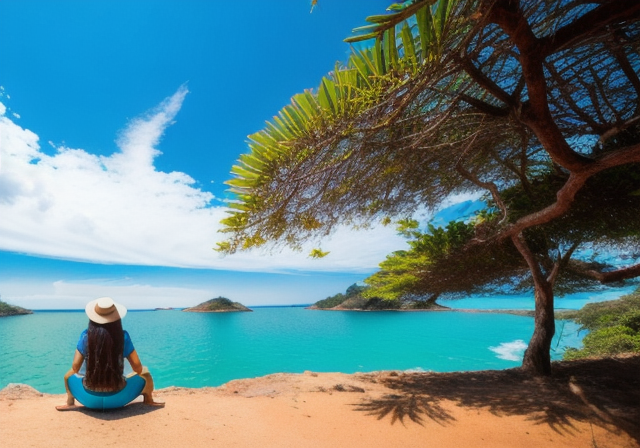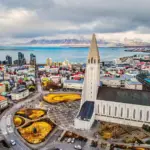One of the first things to consider when traveling alone is destiny. **Do your research** about the place you're going. Check the political and social situation, safety and health conditions, and any visa or vaccination requirements. Also, learn about the local culture, customs, and appropriate behavior to avoid offending or disrespecting locals.
Another important aspect is to plan your itinerary in advance. Define the main tourist attractions you want to visit and plan your time accordingly. Remember to leave some room for unexpected discoveries along the way. It's always interesting to discover lesser-known places that can surprise and delight.

An important point to consider when traveling alone is **staying safe**. Always be aware of your surroundings and trust your instincts. Avoid dangerous or poorly lit areas at night and keep your valuables safe. Also, inform someone you trust about your travel plans and stay in touch regularly to let them know you're okay.
Finally, don't be afraid to meet other people while traveling. Traveling solo doesn't mean you're always alone. Making friends along the way can make the experience even more enriching. Be open to interaction and talk to locals or other travelers. You can learn a lot about the local culture and even find travel companions to explore together.
Trip planning
To the traveling alone, proper planning is essential to ensure a smooth and safe experience. Here are some important steps to consider:
Choosing a destination
The choice of destination is the first step in planning a solo tripConsider your personal interests, budget, and the safety level of the location. Research popular solo travel destinations and check reviews from other travelers. Destinations with a developed tourist infrastructure and a reputation for safety may be a good option for solo travelers. traveling alone for the first time.
Research on local culture and customs
Before embarking on your trip, it's important to research the local culture and customs of your chosen destination. This will help you adapt more easily and respect local traditions. Familiarize yourself with dress codes, greet people appropriately, and learn a few basic phrases in the local language. These small gestures demonstrate respect for the local culture and can open doors for interactions most significant during the trip.
Accommodation reservation
To the traveling alone, your choice of accommodation plays an important role in your safety and comfort. Choose hotels, guesthouses, or hostels with good reviews from other solo travelers. Check the location of the accommodation and whether it offers security measures, such as 24-hour reception and controlled access. Also consider booking accommodations that offer common areas, such as shared kitchens or living spaces, where you can meet other travelers and have the opportunity to make new friends.
Financial planning
Before embarking on a solo travel, it's essential to have adequate financial planning. Establish a budget for your trip, taking into account transportation, accommodations, food, tours, and other expenses. Research the local currency and check exchange rates to get an idea of how much cash to bring or whether it's more advantageous to use credit or prepaid cards. Remember to have an emergency fund to deal with unexpected events during your trip.
Safety Tips
To the traveling alone, it's essential to take precautions to ensure your personal safety. Here are some important tips:
1. Inform family and friends about the trip
Before embarking on your solo adventure, be sure to inform your family and friends of your travel plans. Provide them with details about your itinerary, departure and arrival dates, and contact information. This is crucial so they can be aware of your whereabouts and contact you if necessary. Additionally, it's recommended to maintain regular contact with your loved ones throughout your trip to keep them updated on your well-being.
2. Keep an eye on your personal belongings
When you are traveling alone, it's important to always keep an eye on your personal belongings. Keep your valuables, such as your passport, cell phone, camera, and money, in safe and discreet places. Use bags or backpacks with secure closures and avoid displaying valuables in public places. Also, be aware of potential scams or thefts and avoid leaving your belongings unattended in busy areas.
3. Avoid dangerous places at night
When you are traveling alone, especially at night, avoid areas that may be considered dangerous or poorly lit. Research the places you plan to visit and check for areas to avoid at night. Choose busy, well-lit places with a good reputation for safety. If necessary, use transportation apps to get around more safely.
4. Use security applications
Nowadays, with the advancement of technology, there are several security applications that can be useful during your solo travelSome apps allow you to share your real-time location with family and friends, providing an additional layer of security. Additionally, there are apps that provide information about safety in specific areas, such as crime rates and user safety ratings. Research and download reliable apps that can help you feel safer during your journey.

Socialization and Interaction
In addition to enjoy the freedom of traveling aloneOne of the greatest advantages is the opportunity to meet new people and interact with other travelers. Participating in group activities is a great way to socialize and create lasting connections. Many tourist destinations offer a wide range of group excursions and tours, such as hiking, cultural tours, and sports activities. These experiences allow you to share adventures and special moments with people from different backgrounds and cultures.
Meet other travelers It can be an enriching experience, as you'll have the opportunity to hear inspiring stories, exchange travel tips, and even meet fellow travelers. In hostels and guesthouses, for example, it's common to find solo travelers who are open to meeting new people. Attending social events organized by these establishments is a great way to connect with other travelers and even form groups to explore the region together.
On the other hand, loneliness can also be an opportunity to reflect and relax. Traveling alone It allows you to have quality time with yourself, away from the distractions of everyday life. Take the opportunity to reconnect with your thoughts, enjoy moments of tranquility in beautiful landscapes, or simply relax in a local café while people-watching. Solitude can be a liberating experience that allows for deep self-discovery and a reconnection with your inner self.
Therefore, when traveling alone, enjoy the best of both worlds: participate in group activities to meet new people and create shared memories, but also take time to enjoy your own company and reconnect with yourself.
Lucas Wanderlust has a tireless spirit of adventure, always seeking new travel experiences. Fascinated by the world and the possibility of exploring unknown destinations, he fell in love with the sense of freedom and self-discovery that traveling alone provides. With a backpack on his back and a heart open to the unknown, Lucas embarks on exciting journeys, where each destination becomes a unique chapter in his life story. He gives himself body and soul to the magic of solo travel, inspiring others to follow in his footsteps and discover themselves through adventure.







